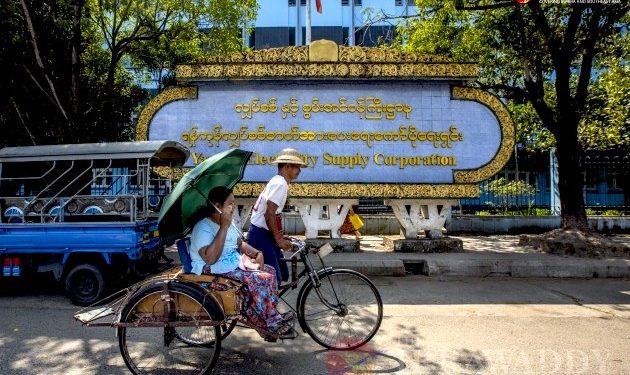Myanmar’s military regime has offered to supply reliable electricity to industrial zones in the commercial capital of Yangon for triple the current price.
The move comes amid a worsening power shortage that has disrupted industry and daily life across the country since 2021, when the military ousted the National League for Democracy government.
The regime is currently surveying opinions of business owners in Yangon via industrial zone management committees.
Survey questionnaires sent out by the regime on Monday ask business owners to identify their factory type, the size of their transformers, how many hours and units of electricity they typically use per day, and if they will agree to pay between 400 and 500 kyats per unit.
“I wrote in the questionnaire that I agree to pay,” said a Yangon garment factory owner. “Electricity via a diesel generator costs around 1,000 kyats per unit. That cost will be halved if electricity is supplied at 400 to 500 kyats per unit. But if we are to pay that price, we want a guarantee that there won’t be power cuts. That guarantee is offered in other countries, where businesses are compensated for power cuts. We want that system.”
The price of electricity for businesses in industrial zones is currently set at 125 to 150 kyats per unit.
The regime launched the survey two months ago.
Currently, industrial zones are supplied with just four hours of electricity per day, forcing factories to operate on diesel generators for much of the time. Production costs have therefore increased two to four times depending on the size of the factory, said business owners.
Business operators who spoke to The Irrawaddy said they were willing to pay the junta-offered price if it came with a guarantee of extended regular supply.
A shortage of natural gas means power-generating turbines operated by the Electricity Ministry have been unable to run at full capacity since the coup. Industrial zones in Yangon have suffered as a result.
The power shortage has increased burdens on businesses that are already weighed down by the kyat’s depreciation, junta restrictions on raw-material imports, inflation, limited access to bank loans, and poor cash flow.
Myanmar’s largest city, Yangon, is still being hit by rotating blackouts even though the monsoon has arrived to replenish hydropower dams. Hydropower is the main source of electricity in Myanmar.

















